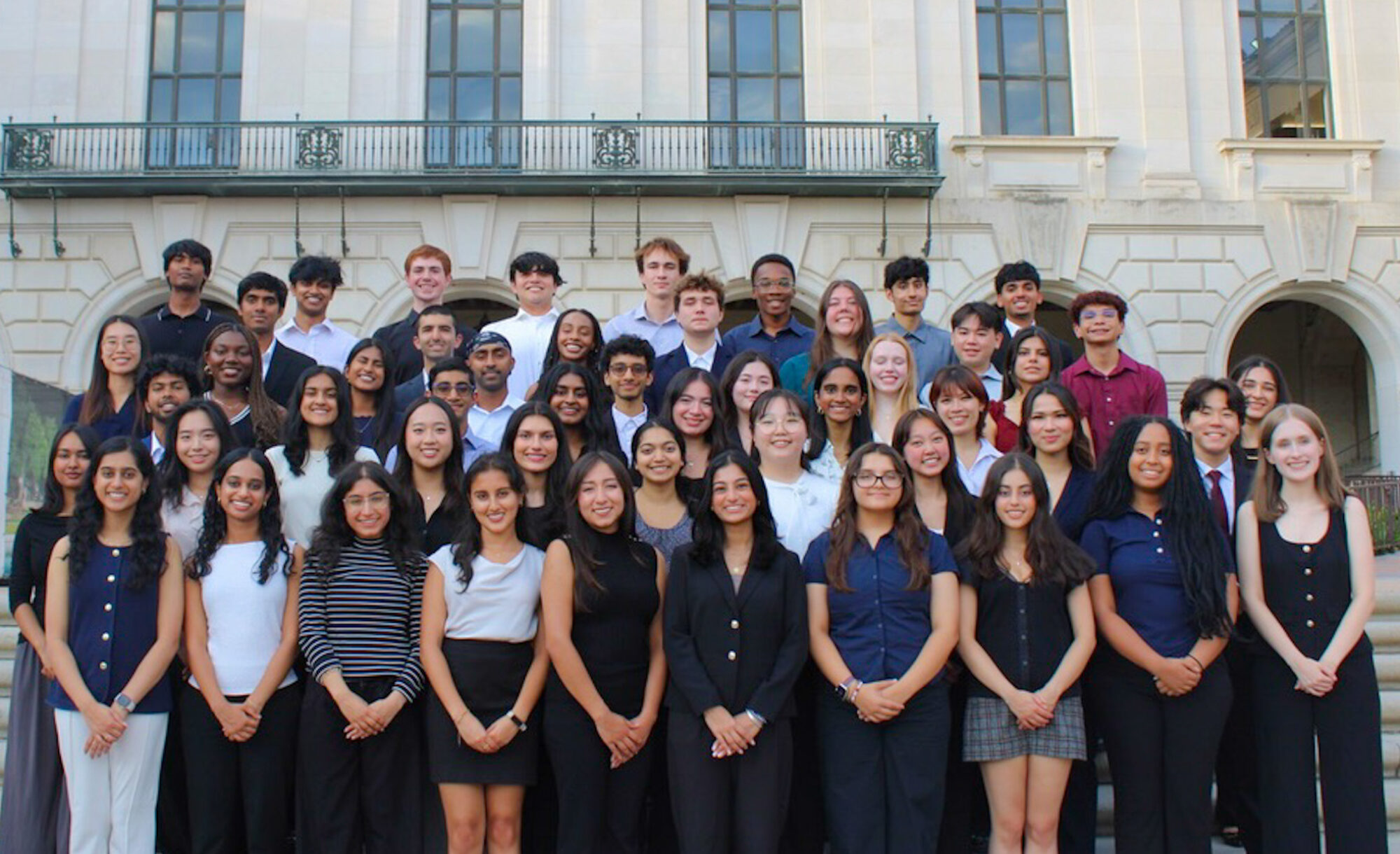What does Natural Sciences Council do?
Natural Sciences Council is the official liaison between the students and faculty/administration in the College of Natural Sciences, the largest college at the University of Texas at Austin. Our mission is to foster an inclusive and welcoming environment within our college through legislation, outreach, and event initiatives. We also strive to make STEM more accessible for students in the Austin area through volunteer work and science outreach.
What are some initiatives NSC has worked on?
- In collaboration with People for PMA, we helped change the name of the Physics, Math, and Astronomy building from RLM to PMA.
- Working with TX Votes, we worked to clarify information around voting in the 2020 presidential election and spotlight STEM topics on the ballot.
- At the beginning of the pandemic, NSC released a COVID-19 resource guide containing mental health resources and financial aid resources, among other things. We also worked on compiling student opinions and presenting them to faculty council, to advocate for more accommodating university academic policies in light of the pandemic.
- NSC, in collaboration with the Sanger Learning Center worked hard to start and secure funding for a Free MCAT Prep Program for underprivileged students at UT.
- Every year, we host a variety of events dedicated to improving student-faculty relations, including Curie Diaries, an event celebrating womxn in STEM. We hope to help students connect with CNS professors in a casual space and make faculty more accessible to students.
- To encourage student success within CNS, we host events dedicated to encouraging professional development, including CNS connections, a networking event featuring company representatives from the Austin area. In the past, we’ve had representatives from IBM, Google, and Oracle come to CNS Connections and speak with CNS students.
- We also run Catalyst, the official student publication of the College of Natural Sciences. On Catalyst you can find student stories, grade distributions for university courses, and detailed information about all the FRI streams.
Do I have to be a member to write or suggest legislation?
While writing is mainly handled by members, anybody can submit ideas and collaborate on legislation. Visit our legislation page to suggest ideas for changes or improvements within CNS. You may also feel free to reach out to our Senate Representative at nsc.senate.representative@gmail.com for more information.
What’s the process for passing/enacting legislation?
Depending on the type of legislation, after it is written it is sent to the appropriate governing body and voted on there. Usually, at the start of every general meeting, legislation is presented by the writers and everyone in council is given an opportunity to express opinions and ask questions. Members will then be allowed to cast their vote for each piece. If legislation is passed, then we follow the implementation steps laid forth by the legislation’s author(s).
How does NSC work with Senate?
As a part of External Senate, we often collaborate with the Senate of College Councils and other college councils to work on a number of initiatives. Also as one of the 17 college councils part of Senate, we vote on Senate bills and work to express student views! To learn more about Senate, click the link below!
What are the different committees and what do they do? What do I do if I still have questions?
NSC has 8 different committees and they each serve a different purpose although they do collaborate on a number of initiatives and events. For more information, check out our committees page.
